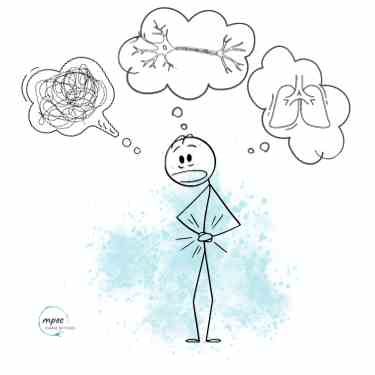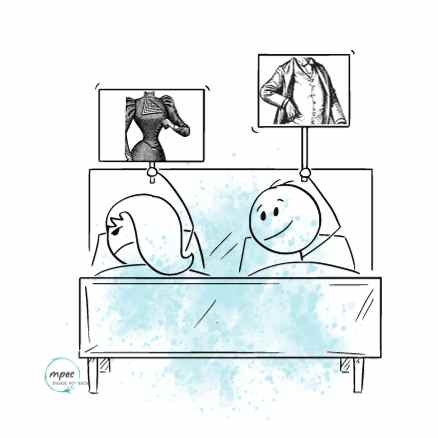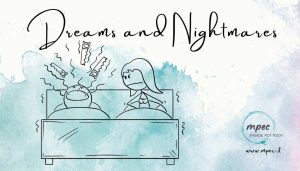Here is a new article written for those who want to learn English in a natural way without having to necessarily talk about the historical ‘Cat is on the table’. The text below is (naturally) in English, but below you will find a file with difficult words translated into Italian and also some questions for Conversation in both English and Italian. Are you ready for a truly intriguing topic? Here it is…
Written with love by: My Personal English Coach

History of Hysteria
Throughout history, women have often been unfairly characterised as irrational, hysterical, and overly emotional.
A deeper exploration of the neuroscience and biology of the brain, however, suggests that these stereotypes might stem less from inherent female nature and more from environmental and societal factors that have historically influenced women’s health and behaviour, particularly in relation to fashion expectations, breathing and consequent brain function.
How exactly are these connected? Let’s give it a look, shall we?
The Brain and Its Fuel
The human brain is an energy-intensive organ, consuming approximately 20% of the body’s total energy production, despite comprising only about 2% of the body’s mass (Raichle & Gusnard, 2002). This significant energy demand is crucial for maintaining the brain’s complex functions, from regulating emotions to processing cognitive tasks.
But what fuels this energy-intensive organ?
The answer is oxygen. Oxygen is essential for the brain’s optimal functioning, facilitating aerobic metabolism, which is vital for producing adenosine triphosphate (ATP), the primary energy carrier in cells (Zauner et al., 2002). This highlights the importance of effective breathing.
How can I check if I am breathing fully? A simple method is to place one hand on the chest and the other on the abdomen. While breathing, notice which hand rises more. Full, diaphragmatic breathing will cause the abdomen to expand more than the chest. Shallow or restricted breathing, on the other hand, often results in more movement in the chest area.
Moreover, many are aware that taking deep breaths can sometimes lead to dizziness. This is often due to a rapid change in carbon dioxide levels in the blood when shifting from shallow to deep breathing, which can temporarily alter blood pH and lead to lightheadedness (Gardner, 1996).

I want to breathe, but my dress is too tight…
But what if breathing is compromised? Studies show that insufficient oxygen supply to the brain can lead to cognitive impairments, mood disturbances, and increased stress responses (Thom et al., 2006). This is where the role of fashion and societal norms, particularly in the context of women’s history, becomes pertinent.

For centuries, fashion trends dictated that women wear tight clothing, for instance, corsets. These garments, tightly laced around the torso, restricted not only physical movement but also proper respiratory function, limiting the ability to take deep, diaphragmatic breaths (Steele, 2001).
Could this historical fashion trend have impacted women’s brain function and emotional regulation? Likely, yes.
By restricting full respiratory function, corsets would have limited the oxygen reaching the brain.
This could have affected cognitive processes and emotional regulation, potentially contributing to stereotypes of women as more ’emotional’ or ‘irrational.’
Restricted breathing capacity can condition rational thinking and lead to struggles in self-regulation. For instance, a woman wearing a tight corset may have found it challenging to concentrate, solve problems, or remain calm in stressful situations due to inadequate oxygen supply to her brain. These difficulties in cognitive functioning and emotional regulation could have been misinterpreted as inherent emotional instability or irrationality.
The profound impact of breath on cognitive and emotional well-being transcends the pages of history and resonates with the contemporary emphasis on mindfulness, well-being, and emotional intelligence.

The narrative of women being inherently irrational and emotional is unfair and it is potentially rooted in restricted breathing and its effects on brain function. This underscores the need for holistic approaches to mental health and well-being, especially for women in the workplace.
S. Pilch, MPEC Partner, ICF Coach
As we shed light on these historical injustices, we recognise the imperative to educate and empower individuals in practices that promote full, healthy breathing. Training in mindfulness and emotional intelligence becomes not just an option but a necessity. By cultivating awareness of our breath and its profound connection to our mental and emotional states, we pave the way for a more balanced, empathetic, and rational society, where stereotypes are dismantled, and well-being is prioritised.
This reflective journey into the past offers a transformative lens for the future, reminding us of the intricate ties between body, mind, and societal constructs, and urging us to breathe fully – not just for the sake of our physiological health, but for the enrichment of our emotional intelligence and the collective well-being of society.
🌟 STUDY ENGLISH WITH THIS ARTICLE 🌟
This article can be used as a base for a B1-B2 Lesson, Conversation Club or for Self Study. Please, download the PDF below to get Conversation Starters (Part 1) Idioms, Adjectives and General Expressions used in the text and Part 2 of Conversation with follow up questions.
Would you like to know more about this topic? Feel free to ask!
#FormazioneInglese #CompetenzeLinguistiche #SoftSkills #CompetenzeAziendali #ComunicazioneAziendale #GoalGetter #HabitHacker #UnleashYourPotential
#MPECJourney #IdentitàBilingue #AutoCoaching #LearningEnglish #ImparareInglese #CelebrateLearning #CelebriamoLApprendimento #BilingualIdentity #OctoberEdition #EdizioneOttobre #SelfReflection #RiflessionePersonale #5MinMissions #Missioni5Minuti #PracticalTips #ConsigliPratici #LearningHabits #AbitudiniDiApprendimento #MPECCommunity #ComunitàMPEC
#breathing #fashion #mindfulness #gendergap





